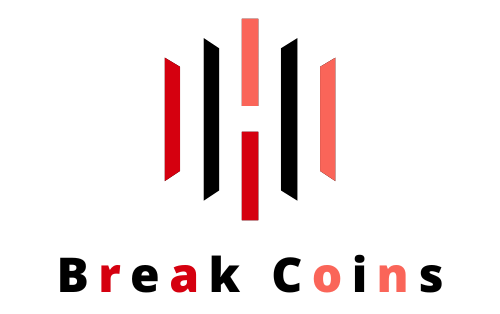As digital currencies like Bitcoin and Ethereum become more popular, the tools used to manage and trade them are becoming more important. Cryptocurrency wallets and exchanges are key parts of the crypto world, each serving different roles but working together to store and trade digital currencies securely.
Cryptocurrency wallets: safe storage for digital assets
Cryptocurrency wallets are tools that let you store, manage, and transfer your digital currencies. They don’t hold actual money but instead store the private keys you need to access your digital coins on the blockchain. Whether you’re a beginner or an experienced trader, having a cryptocurrency wallet is essential for getting involved in the crypto world.
There are two main types of cryptocurrency wallets, each with different levels of security and convenience:
Hot Wallets:
- Hot wallets are connected to the internet, making them easy to use and great for frequent transactions.
- They come as mobile apps, desktop programs, or websites where you can quickly send, receive, and manage your crypto.
- Examples: MetaMask, Trust Wallet, Exodus.
- Pros: Fast, easy to use, ideal for everyday crypto activities.
- Cons: Since they’re always online, hot wallets are more vulnerable to hacking or cyberattacks.
Cold Wallets:
- Cold wallets are offline, making them more secure since they don’t connect to the internet.
- They are usually hardware devices like Ledger Nano or Trezor or can even be paper wallets where you write down your private keys.
- Pros: Maximum security, perfect for long-term storage of large amounts of cryptocurrency.
- Cons: Less convenient for frequent transactions because you need to connect the wallet to a device or manually input private keys.
Cryptocurrency Exchanges: Platforms to Buy, Sell, and Trade
While wallets are for securely storing your cryptocurrency, exchanges are where you can buy, sell, and trade your digital coins. Exchanges are vital to the crypto market because they let people trade different cryptocurrencies or convert them into regular money, like USD or EUR.
There are two main types of cryptocurrency exchanges:
Centralized Exchanges (CEXs):
- Centralized exchanges are run by companies that act as middlemen between buyers and sellers. They manage the funds and transactions for users.
- Popular CEXs include Binance, Coinbase, Kraken, and FTX.
- Pros: Easy to use, highly liquid, support for regular currency transactions.
- Cons: You have to trust the exchange to hold your funds, and since they control your private keys, they are more vulnerable to hacks.
Decentralized Exchanges (DEXs):
- Decentralized exchanges work without a central company. Instead, they use blockchain technology and smart contracts to let people trade directly with each other.
- Popular DEXs include Uniswap, PancakeSwap, and SushiSwap.
- Pros: Greater privacy and security because you control your private keys. Less risk of being hacked by third parties.
- Cons: Usually less liquidity than CEXs and can be harder for beginners to use.
How Wallets and Exchanges Work Together
To take part in the cryptocurrency market, you typically need both a wallet and access to an exchange. For example, you might buy Bitcoin on a centralized exchange like Coinbase and then transfer it to a cold wallet for secure, long-term storage. Similarly, to trade tokens on a decentralized exchange, you’d use a hot wallet to connect to the DEX.
Choosing the Right Wallet and Exchange
When choosing a wallet or exchange, consider your needs, how often you plan to trade, and how much risk you’re willing to take. If you trade frequently, a hot wallet and a trusted centralized exchange offer convenience and speed. If you’re a long-term investor, a cold wallet with limited use of exchanges will provide better security.
Conclusion
Cryptocurrency wallets and exchanges are essential parts of the digital currency world. Wallets help keep your digital assets safe, while exchanges allow you to buy, sell, and trade them. Understanding the differences between the types of wallets and exchanges is key to managing your cryptocurrency safely and effectively.
FAQs: Cryptocurrency Wallets & Exchanges
1. What is a cryptocurrency wallet?
A cryptocurrency wallet is a tool that stores the private keys you need to access and manage your digital currencies, like Bitcoin or Ethereum. It allows you to send, receive, and store your cryptocurrencies securely.
2. Do cryptocurrency wallets hold actual money?
No, cryptocurrency wallets don’t store physical money. They store private keys, which are like passwords that give you access to your digital assets on the blockchain.
3. What is the difference between a hot wallet and a cold wallet?
- Hot Wallet: connected to the internet and easy to use for frequent transactions. It’s convenient but more vulnerable to hacking.
- Cold Wallet: offline and more secure because it’s not connected to the internet. It’s ideal for long-term storage but less convenient for everyday use.
4. Which type of wallet is better for beginners?
Hot wallets are more beginner-friendly because they are easy to set up and use. They work as apps or websites, making them ideal for people who trade or use crypto frequently.
5. What is a cryptocurrency exchange?
A cryptocurrency exchange is a platform where you can buy, sell, and trade cryptocurrencies. It allows users to exchange one cryptocurrency for another or convert them into traditional currencies like USD or EUR.
6. What is the difference between a centralized exchange (CEX) and a decentralized exchange (DEX)?
- Centralized Exchange (CEX): Run by companies that act as middlemen between buyers and sellers. They manage your funds and transactions but require you to trust them with your assets.
- Decentralized Exchange (DEX): Operates without a central authority. Users trade directly with each other using smart contracts, allowing more privacy and control over private keys.



